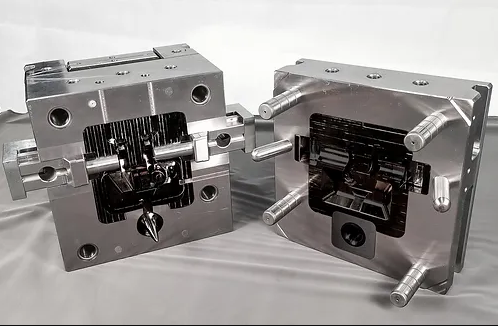Introduction:
In today’s manufacturing industry, precision and efficiency are two crucial factors that determine the success of any production process. Aluminum machining plays a significant role in achieving these goals. With its lightweight, corrosion-resistant, and easily machinable properties, aluminum has become a favored material across various industries. This article explores the importance of aluminum machining, its benefits, and the advancements in machining technologies that have revolutionized the manufacturing sector.
Why Aluminum?
Aluminum is a versatile metal that offers numerous advantages over other materials. Its low density allows for lightweight designs, making it ideal for applications where weight reduction is crucial, such as aerospace and automotive industries. Additionally, aluminum has excellent corrosion resistance, making it suitable for outdoor and marine applications. Its thermal and electrical conductivity also makes it valuable in heat sinks and electrical components. These characteristics, combined with its machinability, make aluminum the material of choice for many manufacturing processes.
Benefits of Aluminum Machining:
1. Precision: Aluminum machining provides exceptional precision due to its consistent material properties and ease of machining. The material’s low thermal expansion coefficient ensures dimensional stability, making it highly suitable for manufacturing complex and intricate parts with tight tolerances. This precision is vital for industries like aerospace, where any deviation can have severe consequences.
2. Efficiency: Aluminum machining offers high efficiency, primarily due to its excellent chip formation properties. Aluminum chips are relatively short and easily evacuated from the machining zone, preventing chip jamming and reducing the risk of tool breakage. This results in uninterrupted machining processes, reducing downtime and improving overall productivity.
3. Cost-effectiveness: Aluminum is an affordable material compared to other metals like titanium or stainless steel. Its widespread availability and lower material costs make it an economical choice for various industries. Moreover, aluminum’s machinability reduces production time, minimizing labor costs, and increasing the overall cost-effectiveness of the machining process.
Advancements in Aluminum Machining Technologies:
1. CNC Machining: Computer Numerical Control (CNC) machining has revolutionized the aluminum machining process. It allows for precise and repeatable machining operations, significantly improving productivity and reducing human errors. CNC machines can operate 24/7, maximizing production efficiency. The integration of CAD/CAM software further enhances precision by generating accurate machining paths and reducing setup time.

2. High-Speed Machining (HSM): High-speed machining techniques involve using specialized cutting tools and high spindle speeds to achieve faster material removal rates. HSM reduces machining time, resulting in improved productivity. It also extends tool life, as the high cutting speeds generate less heat and reduce tool wear. HSM’s success in aluminum machining can be attributed to the metal’s excellent thermal conductivity.
3. 5-Axis Machining: 5-axis machining allows for simultaneous control of three linear axes and two rotational axes, providing enhanced flexibility and precision. This technology enables the machining of complex geometries and contours in a single setup, reducing the need for multiple machines or manual operations. 5-axis machines improve efficiency while maintaining accuracy and quality in aluminum machining.
Conclusion:
Aluminum machining plays a vital role in achieving precision and efficiency in the manufacturing industry. The unique properties of aluminum make it an ideal material for various applications, from aerospace to automotive and electronics. With advancements in machining technologies such as CNC machining, high-speed machining, and 5-axis machining, manufacturers can maximize productivity and improve cost-effectiveness. As the demand for lightweight and high-performance components continues to grow, aluminum machining will remain a key process for achieving precision and efficiency in manufacturing.
-

- Магнезиеви тиксоформовани части, капак на корпуса на лаптопа B
-

- Произведена средна платка за macbook метални части по поръчка
-

- Велосипед Freehub 12/14/16 инча Детски велосипед Ниски велосипеди Велосипеди от магнезиева алуминиева сплав Детски велосипед 3-8 години В наличност
-

- Wholesale Magnesium Alloy Baby Cycle For 3 To 5 Years Old 12 Inch Kids Cycle OEM Cheap
-

- Части за БЛА, тиксоформовани под налягане от магнезиева сплав
-

- Ляти под налягане магнезиеви части, капак на корпуса на лаптопа D

 0086-750-5616188
0086-750-5616188 +86 13392089688
+86 13392089688 sales@zhongmei-tech.com
sales@zhongmei-tech.com







